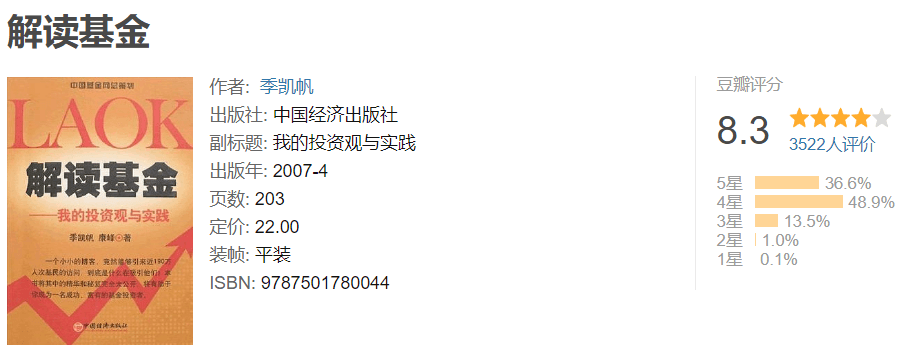“Uninstall the fund app and focus on other things.”
How to Deal with the Continuous Decline of Funds?#
Actually, you don't need to be too anxious or worried.
【First】 you need to understand:
- The stock market cannot always be on the rise; fluctuations are natural;
- If you sell, that loss is inevitable;
- If you want to switch to another fund, can you guarantee that it won't be a worse fund?
- If you switch every time it drops, how much energy will you spend? Is it worth it?
- Have you considered the significant costs incurred by frequent trading?
【Then】 don’t rush to redeem it, here are more reasons:
- For example, from 1925 to 2002, in the 77 years of U.S. stock trading history, if you continuously invested for any 10 years, the chance of loss is 3%, while if you invest for just 1 year, the chance of loss is 30%;
- Excellent fund managers and fund companies should be more anxious than you;
- Unless there are significant changes in the fund company or manager, generally, you should evaluate and switch at least every six months;
- Believe that the world is always getting better [this is an old optimistic thought].
【Of course】 you must pay attention to the initial selection of funds: [I believe that the preparation work for selecting funds initially is more critical than the maintenance later]
- Refer to Morningstar to configure a fund portfolio suitable for you;
- Choose to invest in areas you are familiar with, rather than following the trend to speculate;
- You are using spare money, and even if you lose it all, it won't affect your quality of life.
If you want to read more, you can continue below — the source of the above thoughts is also accompanied by a mind map of the entire book.
Recommended Book — "Interpreting Funds"#
First, let’s share the Douban rating:

Starting from the book "The First Five Years of Work," it sparked my interest in financial management; then to Charlie Munger's "Poor Charlie's Almanack," I strongly agree with Master Munger's diversified thinking; followed by "Money Dog" and "Rich Dad Poor Dad," I realized the necessity of economic thinking on a macro level; until this practical sharing book on funds.
Mind Map#
Among them, the points that inspired me the most are marked in the image below: Use spare money, invest long-term, rebalance, Morningstar...
%25E3%2580%258A%25E8%25A7%25A3%25E8%25AF%25BB%25E5%259F%25BA%25E9%2587%2591%25E3%2580%258B%25E6%2580%259D%25E7%25BB%25B4%25E5%25AF%25BC%25E5%259B%25BE.png&w=3840&q=75)
I highly recommend reading this book yourself; the article is easy to understand and will provide fund beginners with a systematic understanding of funds.
【Finally】 I wish everyone finds an investment strategy that suits them, and invest steadily, bit by bit.
Download Link#
"Interpreting Funds: My Investment Views and Practices (Second Edition)" editable version
There are two versions: ① Original version (suitable for personal reflection), ② Self-marked version (suitable for quickly browsing key points)
Link: https://pan.baidu.com/s/1B6dT_F0-Rrx8nU-2BT6iQA
Extraction code: 36ia